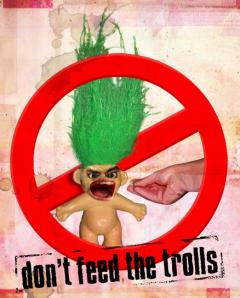Hey, you know what will help teens avoid pregnancy? Comprehensive sex education, right?
Nah.
Here’s Rep. Debbie Riddle, a Republican in the Texas state house:

OK, enough already. My friend Mary – a teacher – not as conservative as I am – has mentioned how many of her students have no foundation of faith and are having babies at 15 – plus so many more problems. She has stated that with no foundation of faith these kids are a drift [sic]. Knowing how sensative [sic] folks are about prayer and ect. [sic] I thought a simple reading of Proverbs – a book of wisdom – would be helpful. I certainly did not intend to offend – I was just throwing out an idea.
She then waxes Jeremiac (I made that word up) about “the level of disrespect in today’s world” (as opposed to yesterday’s world, when rather than posting a mean comment on someone’s Facebook, you challenged them to a duel and possibly killed them) and the importance of “open discussion” (except, apparently, when people disagree with you).
Several things.
1. Apparently you don’t have to understand basic grammar, spelling, and writing style in order to be elected to public office. Seriously, I know this is a nitpicky point compared to the rest of what I’m about to cover, but most of us learned to spell “sensitive” in elementary school.
And to think that Riddle wants to take time out of every school day to read Proverbs. Clearly, there are more pressing problems with Texas education.
2. Congress shall make no law respecting an establishment of religion. Republicans seem to only focus on the second part of that inconvenient part of the First Amendment: “or prohibiting the free exercise thereof.” But that first part is pretty damn important. Our Supreme Court has determined that forcing children to observe religion in public schools violates the establishment clause. In Engel v. Vitale (1962), school-mandated prayer was struck down; in Abington School District v. Schempp (1963), school-mandated Bible reading was struck down as well.
So, although Riddle has now had nearly 40 years to get used to the latter ruling, she apparently has failed to do so. And no, school prayer was not “tossed” because it’s not “politically correct,” but because it violates our Constitution. There’s a difference.
3. Jesus does not prevent teen pregnancy. Comprehensive sex ed does. It also does a lot of other cool stuff, like help prevent STI transmission and sexual assault, but that’s besides the point.
Here’s another interesting thing. According to Gallup, the most religious state in the U.S. is Mississippi. According to the CDC, the state with the highest teenage birthrate is…Mississippi.
Awkward.
Even supposing that this is a fluke, it’s a well-known fact that other states with high levels of religiosity tend to have high rates of teenage pregnancy and birth, as well. Of course, this is all correlation and not causation–except for the fact that religious states tend to have abstinence-only sex ed, which does not work.
Now, Rep. Riddle’s friend Mary, who is of course a credible source because she is “not as conservative” than Riddle (and because this isn’t anecdotal at all) claims that it’s specifically the godless heathens who are getting themselves pregnant. Leaving aside the question of how Mary manages to divine the religious beliefs and observance level of her students–and avoid confirmation bias–the information I have just presented about teenage birthrates in religious states seems to refute her point. Why would nonreligious teens only get pregnant en masse in religious states, but not in nonreligious states? And if they do, what does that say about the environment these states create?
4. The United States was not “built on Christian and Jewish values.” While most of the Founding Fathers identified at least nominally with Christianity, that does not mean that they based the entire nation upon it. Many of them were either deists or anti-clerical Christians, so it’s hard to imagine them supporting state-mandated religious observance. Historian Gregg L. Frazer, meanwhile, argues that the Founding Fathers subscribed to a belief system he calls “theistic rationalism,” which combines religion with reason (a feature mostly lacking in Christian fundamentalism).
Interestingly enough, despite our nation’s supposed “Christian foundation,” the Constitution contains not one mention of the words “God” or “Christianity.” The only time it uses the word “religion” is in the First Amendment, which provides for freedom of–and from–it.
On a side note, can we stop lumping Judaism in with Christianity? These two religions are really quite different. And to suggest that anyone had the Jews in mind when establishing the United States is simply laughable, given how long it took for institutionalized antisemitism to find its way out of our country.
5. Proverbs is hardly the harmless book of “wisdom” Riddle thinks it is. Here are some quotations:
- “Blows and wounds cleanse away evil, and beatings purge the inmost being.” (Proverbs 20:30)
- “Do not withhold discipline from a child; if you punish him with the rod, he will not die. Punish him with the rod and save his soul from death.” (Proverbs 23:13-14)
- “Give beer to those who are perishing and wine to those who are in anguish; let them drink and forget their poverty and remember their misery no more.” (Proverbs 31:6-7)
The first two certainly make sense given the Texas GOP platform‘s ringing endorsement of corporal punishment. As for the latter, I was under the impression that religious Republicans think that people who drink alcohol when they’re under 21 are sinners too.
Overall, an admittedly cursory reading of Proverbs reveals it to be mostly gibberish. I can think of many better things to require schoolchildren to read if you want to teach them about wisdom and morality. I’m personally a huge fan of Nietzsche. But you’re free to disagree.
Also, the idea of Nietzsche ever being taught in a Texas public school is sadly unlikely.



